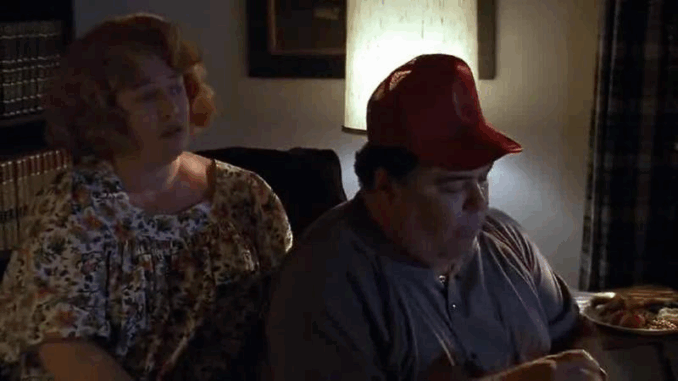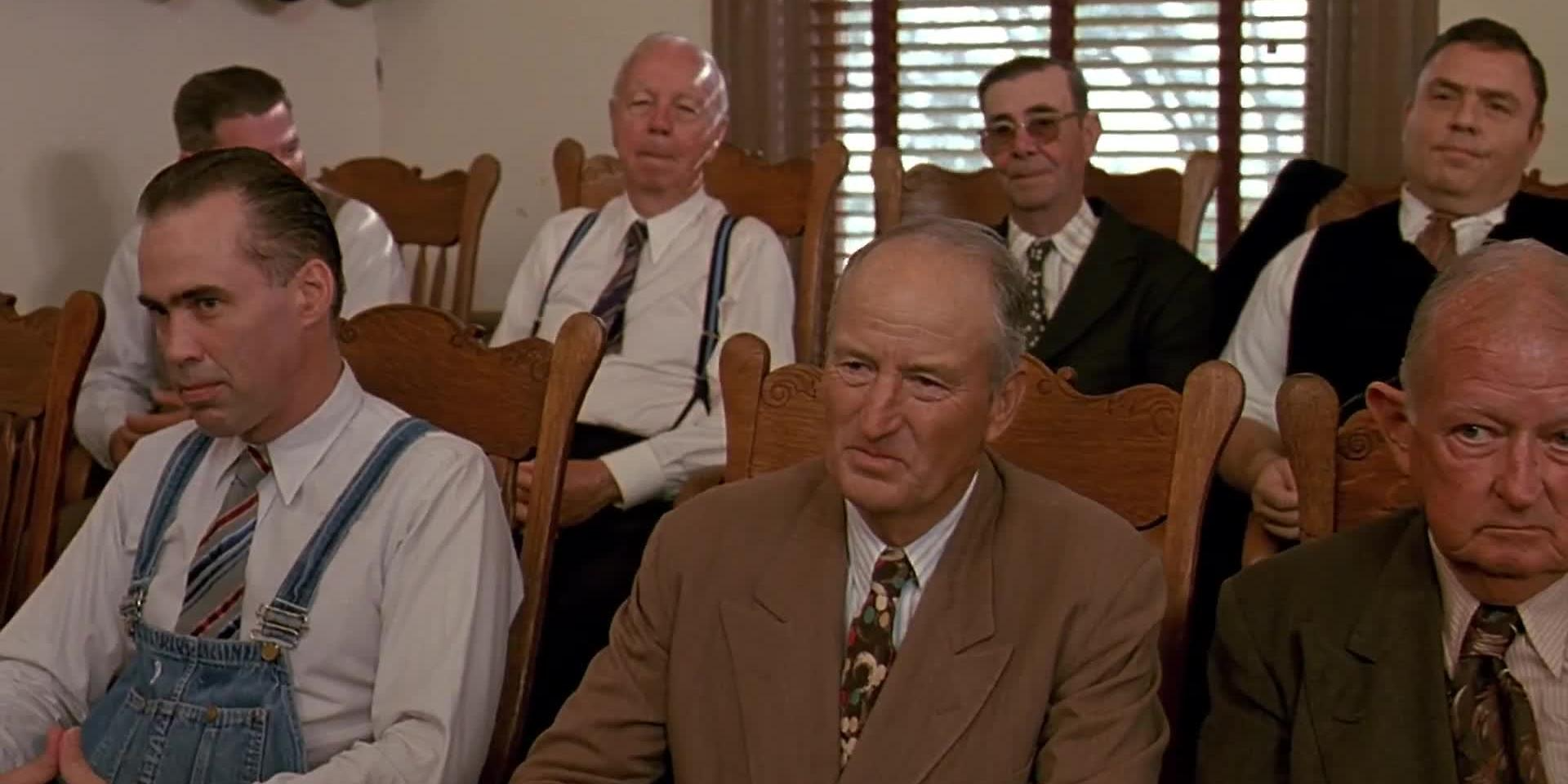
The Trial That Gripped Whistle Stop
Toward the climax of Fried Green Tomatoes, the story takes a dramatic legal turn. Idgie Threadgoode is brought to trial for the murder of Frank Bennett, Ruth’s abusive husband. The stakes are high. The courtroom is filled with whispers, suspicion, and societal tension. Yet beneath the formalities of law and order lies something far more powerful: loyalty, love, and a town’s unspoken resistance to injustice.
This trial is not just about whether Idgie is guilty. It’s about whether a system built on patriarchy and racial bias can truly deliver justice. And, more deeply, it asks what kind of justice a community will stand behind when faced with moral ambiguity.
A Courtroom Full of Secrets
Everyone in the courtroom knows that Frank Bennett is missing. What they don’t know—or won’t say out loud—is that he was an abusive man who came to Whistle Stop to reclaim his child by force. His disappearance is less a mystery and more a tragedy avoided. Still, the law demands answers.
The prosecution paints Idgie and Big George as the likely perpetrators. A woman who defies gender norms and a Black man with a history of defending his family—easy targets in a Southern courtroom. The insinuations are clear, but no one dares voice the real reason Frank might have been killed: to protect Ruth and the child from a violent man.
Idgie’s Bold Defiance
As Idgie takes the stand, she is characteristically irreverent. She mocks the court’s formality and questions its authority. Her sarcasm is her shield, but beneath it lies a steady courage. She knows the danger she’s in, yet she refuses to betray anyone or confess a truth that would harm her found family.
Idgie’s defiance is not arrogance—it’s love. She’s not protecting herself; she’s protecting Sipsey, Big George, Ruth, and the life they’ve built. Her silence is strategic. It’s a refusal to let the court twist the truth into something cruel. She knows that in this place and time, justice does not always follow the law.
Reverend Scroggins and an Unexpected Ally

Just as the verdict seems to hang in uncertainty, Reverend Scroggins—a man previously seen chastising Idgie for her wildness—steps forward as an unexpected ally. He provides an alibi, saying that Idgie was with him at the time of Frank’s disappearance. It’s a lie, and everyone in the room knows it. But it is also a blessing, delivered with the authority of the cloth.
His intervention is more than charity. It is a recognition that the legal system is flawed, and that real justice sometimes comes from community, not the courtroom. His lie is an act of grace, one that tips the scales in Idgie’s favor.
The Verdict and Its Implications
The judge delivers a verdict of not guilty. Relief floods the courtroom—but so does quiet acknowledgment. The law has failed to uncover the truth, but perhaps that is exactly what needed to happen. The town, in its silent unity, has chosen to protect one of its own over a man whose cruelty left scars across multiple lives.
This moment is not triumph in the traditional sense. No one cheers. There are no fist pumps or dramatic music cues. Instead, there is a deep exhale, a collective sigh of justice done—not by the books, but by the heart.
Sipsey’s Invisible Strength
Though not on trial, Sipsey is at the center of the storm. She is the one who killed Frank, striking him with a cast-iron skillet to protect the child he threatened. As a Black woman in the Jim Crow South, her act was both heroic and perilous. Had the truth come to light, she likely would have faced execution.
That’s why the silence around the real story matters. It’s not cowardice—it’s survival. The decision to frame the trial around Idgie is a calculated act of protection. Everyone involved—Idgie, Big George, even Reverend Scroggins—knows that the law is not built to protect someone like Sipsey. So they form their own justice.
Sipsey’s role, while quiet, is essential. She is the protector of the family and the one who made the hardest choice. The town’s willingness to shield her is a rare act of communal bravery.
The Limits of Legal Justice
This trial scene challenges the audience to consider what justice really means. Is it the enforcement of law, regardless of moral context? Or is it the protection of the vulnerable, even if it means bending the rules?
Fried Green Tomatoes doesn’t offer easy answers. Instead, it reminds us that justice is often messy, imperfect, and deeply human. The law may serve order, but communities serve people. In Whistle Stop, the people chose mercy.
The Aftermath and What It Means
After the trial, life in Whistle Stop goes on, but the bonds forged in the courtroom remain strong. The community’s loyalty to Idgie and Ruth deepens, and the café continues to serve as a place of healing, laughter, and defiance. The trial, once a threat, becomes a moment of quiet solidarity.
For Evelyn, hearing this part of the story from Ninny offers clarity. It shows her that strength comes in many forms—not just in confrontation, but in loyalty, in love, in standing by your people no matter what.
A Testament to Chosen Family
At its core, the courtroom scene is not about murder. It’s about chosen family. About how people, bound not by blood but by love, will protect each other at all costs. Ruth, Idgie, Big George, Sipsey—they are not a traditional family, but they are fiercely loyal.
That loyalty is what saves Idgie. It’s what saves Sipsey. It’s what gives the town of Whistle Stop its soul.
